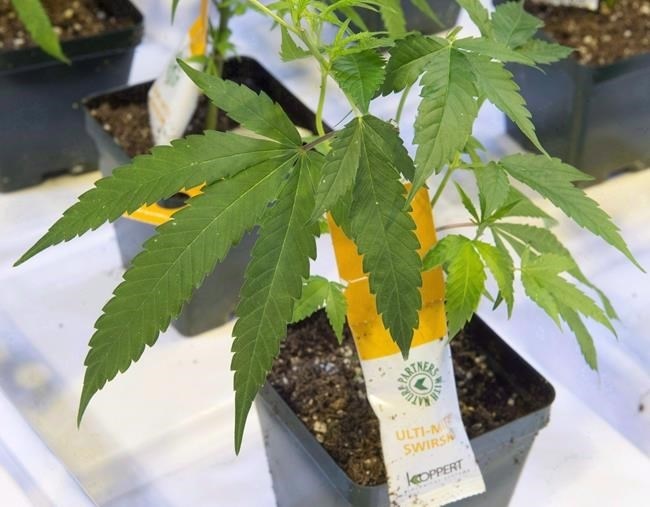Supreme Court says Quebec's ban on homegrown cannabis plants is constitutional

OTTAWA - Quebec’s ban on possessing and cultivating cannabis plants for personal purposes is constitutional, Canada's high court ruled Friday.
The Constitution allows Quebec to implement the restrictions, which do not frustrate the purpose of the federal Cannabis Act, the Supreme Court of Canada said in a unanimous ruling. The 2018 federal law permits people to grow or own up to four cannabis plants at home.
"The provincial act’s public health and security objectives and its prohibitions are, to a large degree, in harmony with the objectives of the federal act, and there is no basis for finding a conflict of purposes," Chief Justice Richard Wagner wrote.
Canada adopted the Cannabis Act in 2018, decriminalizing the recreational use of cannabis across the country and limiting to four the number of plants that residents could have or grow at home. Quebec responded soon after with its own law, prohibiting the possession of a cannabis plant, with fines ranging from $250 to $750.
The court said Quebec's law is a valid use of its Constitutionally granted powers regarding subjects under exclusive provincial jurisdiction: property and civil rights, and matters of a merely local or private nature.
Wagner wrote that Quebec's marijuana legislation has a different approach compared with the federal law but shares the same objectives — to reduce the presence of criminal organizations in the cannabis market and restrict homegrown marijuana.
The court said the prohibitions under Quebec's cannabis act are meant to ensure the effectiveness of the state-run cannabis monopoly, which is designed to prevent and reduce harm from marijuana by limiting consumers' options.
"The provincial legislature was of the view that, by contributing to the creation of a single market, the absolute prohibitions against possession and cultivation at home would serve to limit trafficking in cannabis from unauthorized sources," Wagner wrote.
"Furthermore, it is not this court’s role to decide which of the two approaches — prohibiting personal production or tolerating it — is most likely to reduce illicit activities in relation to cannabis."
In addition to Quebec, Manitoba also has a similar ban in place on homegrown cannabis.
The Supreme Court's decision dismisses an appeal brought by Janick Murray-Hall, a Quebecer who had challenged the provincial ban successfully before Quebec's Superior Court, arguing that federal law should prevail over the provincial ban.
Quebec's attorney general appealed that decision and won; Murray-Hall then appealed to the Supreme Court.
The case was one of two appeals heard last September at the Quebec City courthouse during a Supreme Court sitting outside of its usual Ottawa courtroom.
This report by The Canadian Press was first published April 14, 2023.









